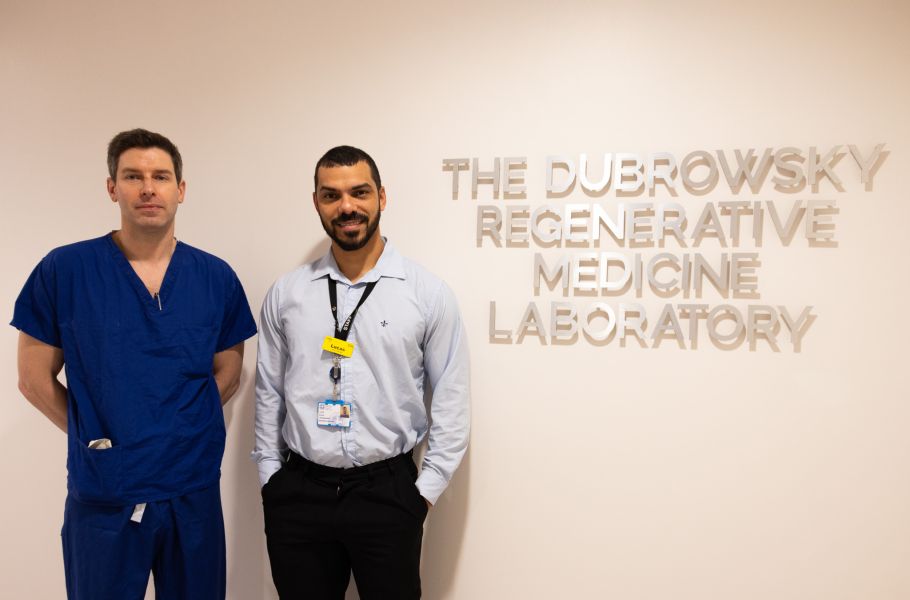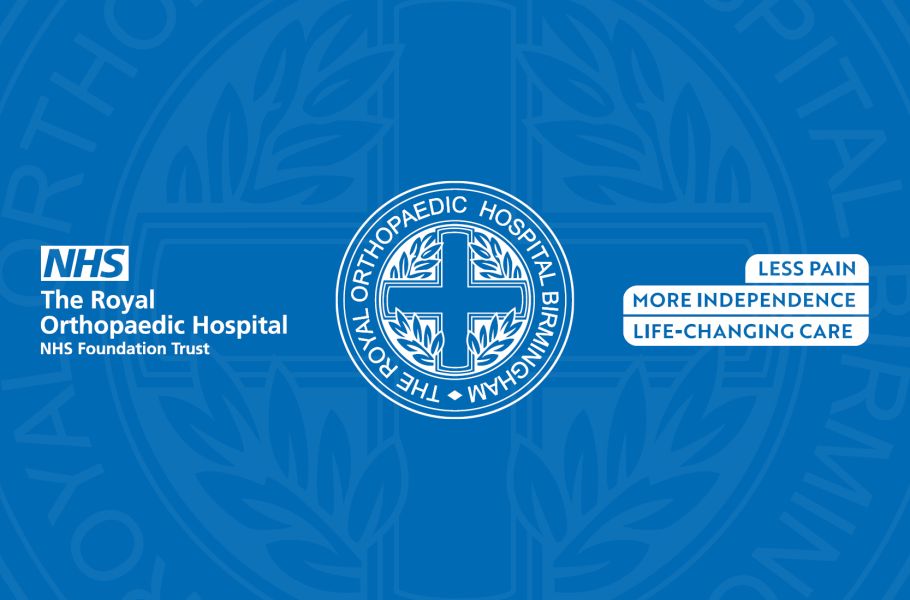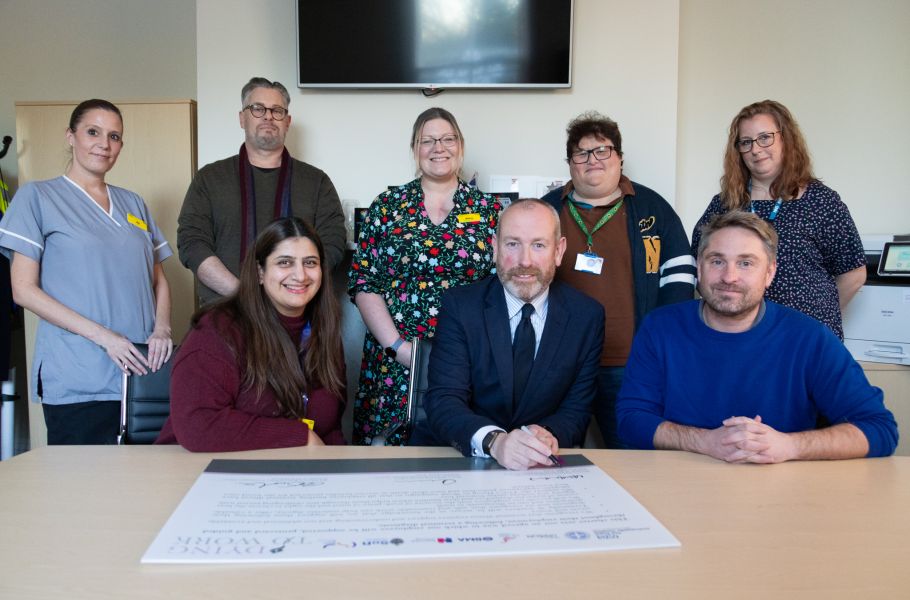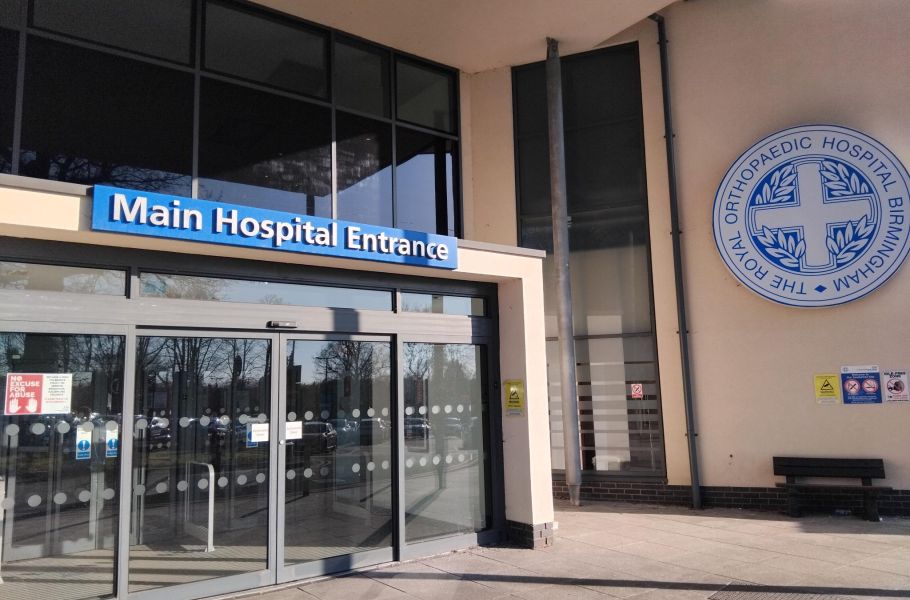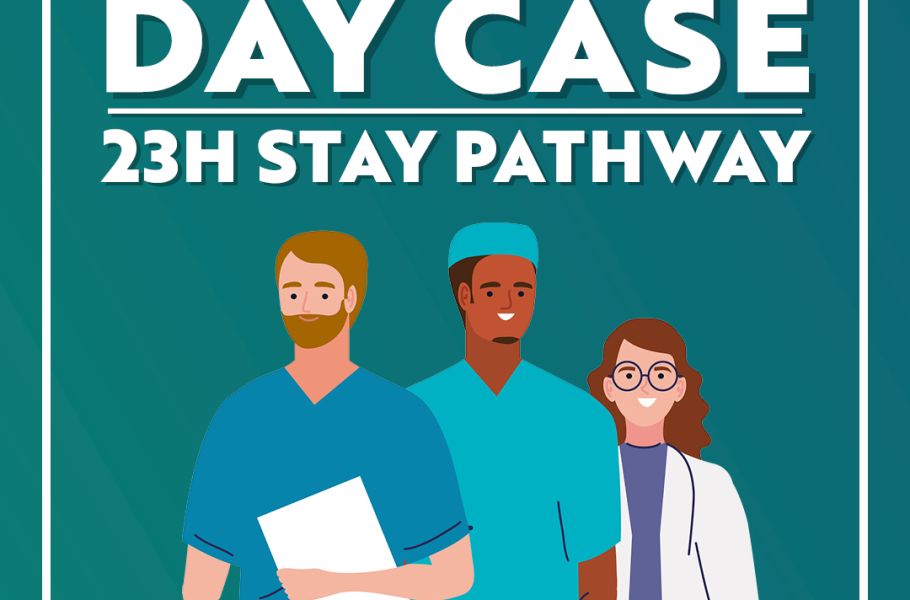The role of Advanced Practice Physiotherapists in delivering specialist care
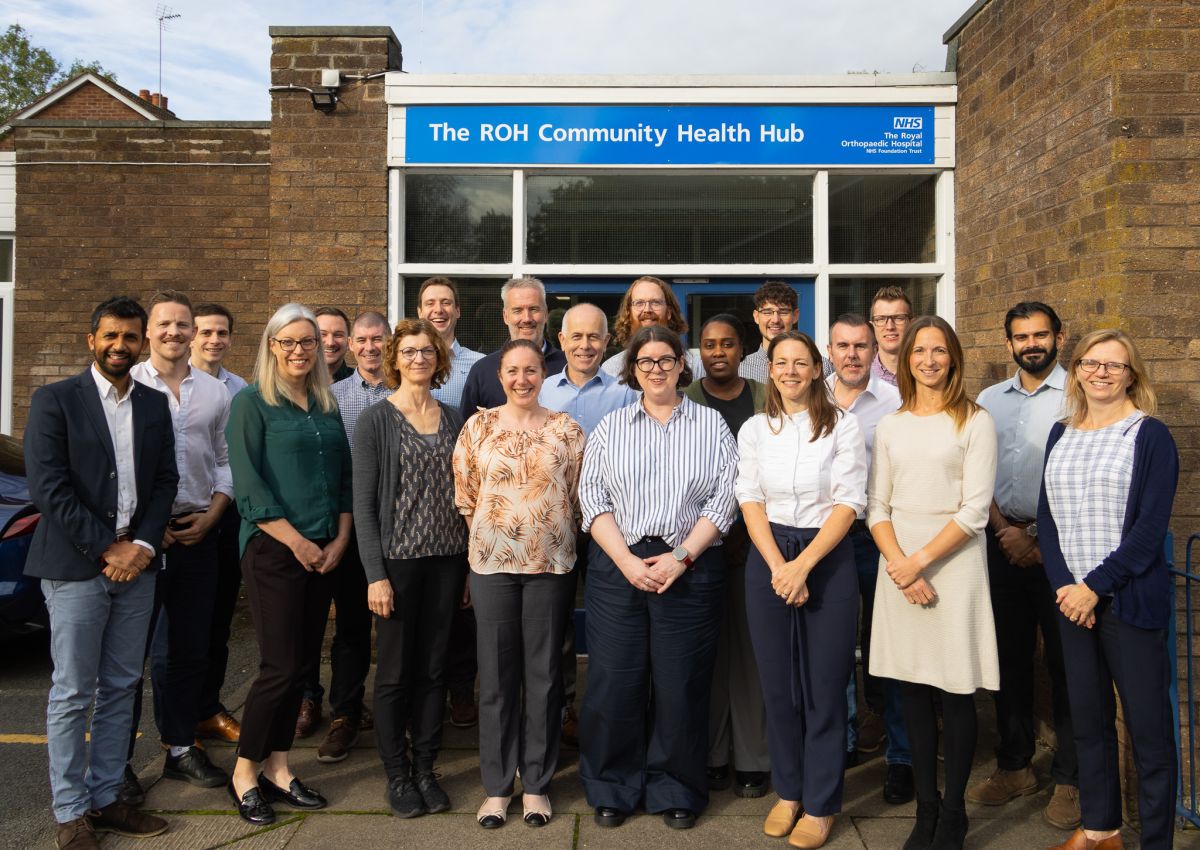
At the Royal Orthopaedic Hospital (ROH), Advanced Practice Physiotherapists deliver specialised care to support patients' recovery and health. They help manage patients using complex decision-making processes and triage clinics to help ease surgical waiting lists.
What is an Advanced Practice Physiotherapist?
An Advanced Practice Physiotherapist is a specialist practitioner that enables quality and integrated care by supporting with the management of highly complex patients, working in a multidisciplinary team of Orthopaedic Physicians, Consultants in sport and exercise medicine and orthopaedic surgeons.
Andy Emms, Consultant Physiotherapist for the Centre for Musculoskeletal Medicine at ROH, explains: “Advanced Practice Physiotherapists (APPs) have a range of roles, dependent on the organisation. At the ROH, APP teams are split into Spinal and Peripheral (arms and legs) providing specialist care for patients presenting with musculoskeletal pain.”
Musculoskeletal pain is pain that affects the bones, joints, ligaments, skeletal muscles or tendons and can be temporary or chronic. Musculoskeletal pain can have a variety of causes. Some are obvious such as injury or overuse, while others are more difficult to understand and need a holistic approach.
Kim Osasuyi is an Advanced Practice Physiotherapist at the ROH. She explains more about her role: “As an APP I act as a Physiotherapy Lead within a multidisciplinary team of specialists involved in the management of patients referred to the service using analytical skills and manual assessment techniques to determine a clinical diagnosis, as an autonomous practitioner. This involves formulating individual management and treatment plans for patients with spinal musculoskeletal pain and referring them on to the most appropriate service.”
Improving the patient journey
Advanced Practice Physiotherapists support with easing surgical waiting lists through triage clinics. Helen Williams, Advanced Practice Physiotherapist at the ROH, explains: “Patients are usually assessed at an APP triage clinic when they’ve been referred by their GP. This is where we carry out an initial assessment and ensure they are directed to the most appropriate treatment, which isn’t always surgical. This means surgeons are freed up to focus on those patients who do need surgical intervention.
“This is really important because there is such a demand in the NHS for patients with joint, bone and muscle pain. Some of these patients can be treated without the need for surgery, such as physiotherapy or injections for pain management, while others will need to be seen by a surgical consultant to discuss their options further. Because APPs are trained to a higher level, with a broad range of expertise alongside their specialism, we’re able to provide a link between GPs and surgical consultants. We can also order investigations such as imaging and blood tests, to assist with diagnosis where necessary and make sure that patients are being directed to the best specialist to support them in reducing their pain and giving them more independence.”
Embedding high levels of expertise in specialised clinical areas
The role of an Advanced Practice Physiotherapist is usually a diagnostic role, but there are some specialisms that are more hands on. One APP at ROH, Ryan Pope, is a lower limb specialist who focuses on rehabilitation for patients. Based out of College Green, ROH’s Physiotherapy Outpatient centre, Ryan delivers patient care alongside developing staff through supervising, mentoring and training. Ryan adds: “I really enjoy this role because I’m able to provide specialist guidance in rehabilitation while supporting our staff to develop. You need to have a lot of experience in a variety of settings for these roles, and as we often see patients with multiple health conditions a broad experience can help in managing such complexities.
“Because of my experience I’m also able to close the gap between the consultants and physios who sit in our triage clinics and after surgery. Understanding the impact of surgery on rehabilitation means I’m able to guide staff in their treatment recommendations more effectively to help ensure patients have the best outcomes.”
Andy adds: “We are able to use our core Physiotherapy skills to guide patients through rehabilitation while having the advanced knowledge of when and how to perform investigations and tests, and when a surgical consultation is the right path for the patient. This only works through collaborative working across specialities. Surgery is not always the best option for many patients and it’s great that the ROH can offer alternatives through the MSK team.”
In the UK Musculoskeletal problems affect over 20 million people[1]. While this ranges from minor injuries to long-term health conditions, the impact on the NHS is huge. Providing more effective pathways for patients to access the right care for them and get them on the road to recovery is essential for reducing this demand and supporting a healthy population.
To learn more about Musculoskeletal Services at the Royal Orthopaedic Hospital, visit Royal Orthopaedic Hospital - Musculoskeletal.
